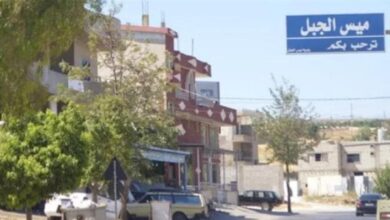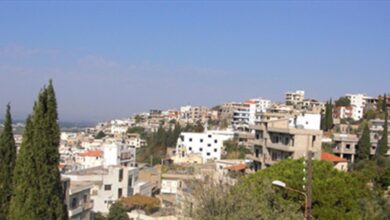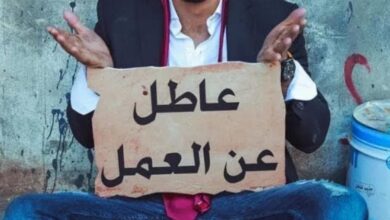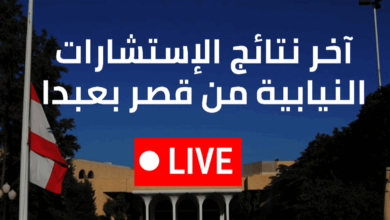He was more careful than Nasrallah.. Who is the ghost that Israel is watching?
The Israeli newspaper The Times of Israel published a report that talked about the strength of the Houthis in Yemen and their endeavor to prove that they are not weak before Israel, as it said.
The report he translated says: Lebanon24 The Israelis were forced 8 times during the past two weeks to seek refuge due to ballistic missile attacks launched from Yemen, especially during the night.
He added: Behind these attacks is a group known as the Houthis, which, despite their presence about 2,000 kilometers (1,200 miles) away, has managed to harass the Jewish state from afar and stifle global trade, while proving stubborn resistance to the West’s attempts to suppress them.
He added: With the serious deterioration of Hamas’ military capabilities, Hezbollah’s acceptance of a ceasefire in Lebanon, the overthrow of the Syrian regime, and the Iraqi groups’ decision, according to reports, to stop attacks, it seemed in early December that Israel might finally be free of sirens. Of air strikes, loud interceptions and deadly impacts that have become a constant torment since October 7, 2023.
He continued: In light of this vacuum, the Houthis intervened, and they are the only active members of the Iranian resistance axis who are still participating in direct hostile actions against Israel. In recent weeks, the insurgent group has escalated its long-range, high-powered missile attacks to match the severity and breadth of the threat previously posed by its Iranian-backed partners.
The report considered that the Houthis drew inspiration from Hezbollah in Lebanon, which was previously considered Iran’s most powerful proxy while it had strong relations with it.
In this context, Mike Knights, a senior fellow at the Washington Institute for Near East Policy and a veteran expert on Iranian-backed groups, said: The Houthis’ goal has always been to be the next Hezbollah.
The report also found that the threat posed by the Houthi group is exacerbated by its distance from the Jewish state, which restricts air strikes, and limited Israeli intelligence on potential targets.
He continues: The Ansar Allah group, officially known as the Houthis, which originated in the mountainous regions of northwestern Yemen, is an ethno-religious group and its members belong to the Zaidi sect, a branch of Shiite Islam that split in the eighth century due to a religious conflict. The group has always embraced extremism, and operates under the slogan “God is Great,” “Death to America,” “Death to Israel,” “Curse the Jews,” and “Victory to Islam.”
He continued: As a political force, the group first emerged in the unrest that followed unification in the early 1990s under the leadership of Hussein al-Houthi, a prominent tribal leader and opponent of Yemeni President Ali Abdullah Saleh. Inspired by the Islamic Revolution in Iran and the rise of Hezbollah in Lebanon, the Houthis sent their close associates for military and religious training.
He added: The Houthi alliance with the Iranians has strengthened under the leadership of Qassem Soleimani, the late commander of the Quds Force of the Iranian Revolutionary Guard, who led the Iranian resistance axis starting in the late 1990s.
He said: Although they are not considered mainstream Shiites, in recent years the Houthis have emphasized their ties to Shiite Islam practiced in Iran, and have allied themselves with the religious regime in Tehran.
Here, Knights points out that the Iranians realized that they had a very stubborn and powerful partner in the Houthis, so they pushed them to the front of the line among their partner forces in the region.
According to the report, the Houthis control northwest Yemen, home to two-thirds of the country’s 34 million people, although they do not control any of Yemen’s oil and gas resources. In contrast, the internationally recognized government rules the south and east through different local administrations.
He continued: The civil war, which has now been more than a decade old, has turned the country into a critical humanitarian situation, with the United Nations reporting that 18 million people are in need of urgent aid, including nearly 10 million children, in conditions more like… By famine. Also, the country has one of the highest fertility rates in the world at 6.2 children per woman, according to United Nations data, due to early marriage, limited education for girls, and low use of contraception.
He continued: These conditions have helped strengthen the Houthis’ grip on power, and Knights says that families will literally sell their children to the Houthi movement because, as soldiers, they will at least get food.
He continued: Some foreign parties have taken advantage of the dire situation by recruiting Yemeni fighters to fight for them, including Russia in its war in Ukraine. While they can rely on a seemingly endless supply of fighters, the real threat to Israel and other countries in the region stems from Houthi air power, which has developed significantly.
He continued: In 2013, the Houthis relied on basic Katyusha missiles. By 2015, with Iranian support, they launched Scud medium-range ballistic missiles at Saudi Arabia. In subsequent years, they repeatedly targeted Saudi oil refineries with attack drones and other missiles.
He continued: The Houthi arsenal now includes short-range missiles, enabling them to disrupt maritime trade in the Red Sea, as well as drones and long-range ballistic missiles (Palestine), which they pledged to continue firing at Israel until the end of the war in Gaza.
He said: The Houthis also claim that the Palestine missile, including a hypersonic version, is manufactured locally, but the weapon bears the distinctive signs of missiles used by the Iranian Revolutionary Guard. While Iran claims it is not arming the Houthis, ships heading to Yemen detained by the United States and its allies found Iranian weapons, missile fuel, and components on board.
He added: Although Israel was able to intercept many of the missiles and drones launched by the Houthis, many of them were able to penetrate air defenses, and the fall of shrapnel means that even those shot down by Israel still pose a threat.
He adds: To confront this group, Israel has so far carried out four rounds of escalating air strikes in Yemen. Last week, Defense Minister Israel Katz said that Israel would begin escalating pressure on the Houthis by targeting their leaders, repeating the strategy it used against Hamas and Hezbollah. But the Houthis represent a very different challenge from other terrorist groups that Israel has been able to subjugate, and their leaders may be difficult to eliminate.
The report reveals that the Houthi leader, Abdul-Malik al-Houthi, has the skill of concealing his whereabouts, and that he has managed, for more than a decade, to evade assassination. It added: Al-Houthi records his speeches in advance, just as the former Secretary-General of Hezbollah, Hassan Nasrallah, did. Here, Knights says: In fact, Al-Houthi is more careful than Nasrallah, who hid from Israel for years before his killing last September.
Knights stated that Al-Houthi is like a ghost, and only a small number of people know his whereabouts at any given time. He also does not carry any electronic devices at all, and appears in public only rarely.
Also, the report says that since the Houthis have recently become a major issue for Jerusalem, Israel is believed to have limited intelligence not only on the group’s leaders but also on its weapons stores, limiting the bank of potential targets in airstrikes.
He continued: So far, Israeli army strikes have targeted economic and civilian infrastructure in Yemen – the port of Hodeidah in July, which the Houthis use to import fuel and weapons from Iran, as well as Sanaa International Airport and other maritime infrastructure in a series of strikes last week. But it seems that the Yemeni group, which adopts a deadly ideology, has not yet backed down from attempts to exert military or economic pressure on it.
Knights pointed out that the most obvious way for Israel to stop Houthi attacks is to reach a ceasefire in Gaza, assuming that the group will adhere to its promise of a ceasefire once a truce is reached, and he continued: There is another option is to impose a stricter blockade on Yemen in cooperation with… International partners, including halting all incoming maritime trade and land smuggling routes from neighboring Oman to completely cut off arms supplies from Iran.
He continued: The third option, and perhaps the most effective, is for Israel’s regional allies to provide military support to ground forces allied with the internationally recognized government that has been fighting the Houthis for years. Here, Israel may quietly play an indirect role in supporting such a coordinated attack.
The expert expected that the Houthi rebels would quickly find their forces exhausted due to pressure on them from the north, south and east, forcing them to withdraw from the main cities.
Source:
Translation of Lebanon 24





